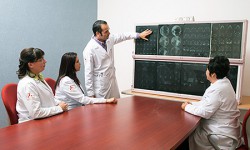
In the most comprehensive breast cancer treatment study of its kind to-date, scientists may have uncovered the potential for new breast cancer treatment therapies, and possibilities for the development of new drugs aimed at preventing the disease.
More than 100 Genes Linked to Breast Cancer Revealed
After discovering a bounty of genes linked to breast cancer, scientists may soon be able to develop new genetic tests for predicting breast cancer risk, and using the data obtained, ensure targeted cancer treatment for patients.
Genes Linked to Survival Could Aid in Prevention
Thirty-two additional genes, linked to survival in those with receptor-positive breast cancer, were also uncovered. These are hoped to be used to test new treatments, as well as for providing targeted prevention protocols for those most at-risk of developing breast cancer.
Super Sleuths
In the study, funded by Breast Cancer Now, scientists from the Institute of Cancer Research in London used a new genetic technique called ‘Capture Hi-C’ to analyze how genes interacted with 33 DNA regions known to play a role in breast cancer. Of the 110 genes identified in the study, the majority had not been previously linked to breast cancer, providing fresh new insight for those striving to develop improved cancer treatment regimens.
A Vital Piece to Puzzling Out the Disease
The findings are seen as integral to unraveling how genetic changes in the building blocks of the body’s DNA influence breast cancer risk, providing a key piece to solving the cancer puzzle.
Puzzling out your cancer treatment options? Discover the path to improved health with Issels® individualized cancer treatment protocols today.


